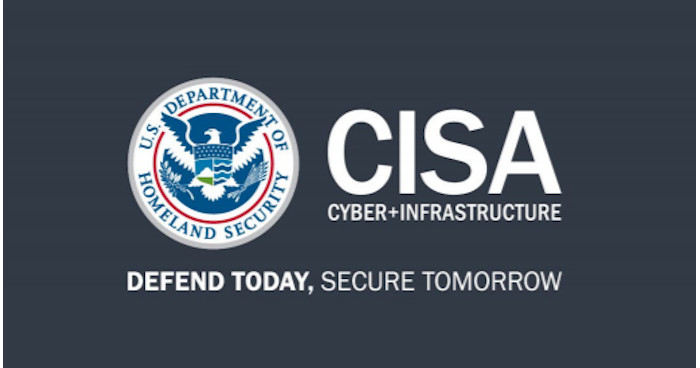CISA Adds New CVEs to Known Exploited Vulnerabilities Catalog
U.S. CISA Adds Vulnerabilities to KEV Catalog
The U.S. Cybersecurity and Infrastructure Security Agency (CISA) has included several critical vulnerabilities in its Known Exploited Vulnerabilities (KEV) catalog. These include flaws in Adminer, Cisco IOS, Fortra GoAnywhere MFT, Libraesva ESG, and Sudo.

Adminer Vulnerability
- CVE-2021-21311: This vulnerability allows server-side request forgery, enabling remote attackers to access potentially sensitive information.
- Action: Apply mitigations as per vendor instructions and follow applicable BOD 22-01 guidance.
Cisco IOS Vulnerability
- CVE-2025-20352: A stack-based buffer overflow vulnerability in the Simple Network Management Protocol (SNMP) subsystem.
- This flaw can lead to remote code execution or denial of service.
- Action: Apply mitigations as per vendor instructions and follow applicable BOD 22-01 guidance.
Fortra GoAnywhere MFT Vulnerability
- CVE-2025-10035: This vulnerability involves deserialization of untrusted data, allowing execution of arbitrary commands on affected systems.
- Action: Users should upgrade to a patched version (latest release 7.8.4).
- Additional details can be found in the Fortra Advisory.
Libraesva ESG Vulnerability
- CVE-2025-59689: A command injection vulnerability exploited by nation-state actors through specially crafted compressed attachments.
- This flaw allows attackers to execute arbitrary commands as a non-privileged user.
- Action: Users should upgrade to the latest version of Libraesva ESG.
- More information can be found in the Libraesva advisory.
Sudo Vulnerabilities
- CVE-2025-32463: This vulnerability allows local users to escalate privileges to root on affected systems.
- Action: Users should apply mitigations as per vendor recommendations and follow applicable BOD 22-01 guidance.
- Additional details are available in the Sudo security advisory.
Libraesva ESG Zero-Day Exploit
The Libraesva Email Security Gateway (ESG) has been targeted by suspected state-sponsored attackers exploiting a zero-day vulnerability.
CVE-2025-59689 Details
- This command injection vulnerability results from improper sanitization of code in compressed archive files.
- Attackers can execute arbitrary shell commands using specially crafted emails.
- The vulnerability affects versions from 4.5 to 5.5.
- Fixes have been rolled out for the 5.x branches via automatic updates.
- For 4.x users, a manual upgrade to a fixed 5.x version is required as 4.x is no longer supported.
Response to Exploit
Libraesva has confirmed that their security team is analyzing details of the attack and has rolled out an emergency security update. They emphasize the importance of rapid patch deployment due to the precision of the threat actor believed to be a foreign state.
Threat Actors Chaining Vulnerabilities in Ivanti CSA
CISA and the FBI have issued a joint advisory regarding multiple vulnerabilities in Ivanti Cloud Service Applications (CSA) that were exploited in September 2024.
Vulnerabilities Overview
The vulnerabilities include:
- CVE-2024-8963: An administrative bypass allowing remote access to restricted features.
- CVE-2024-9379: SQL injection vulnerability.
- CVE-2024-8190 and CVE-2024-9380: Remote code execution vulnerabilities.
Exploitation Details
Threat actors exploited these vulnerabilities in chains to gain initial access and conduct remote code execution, leading to credential theft and webshell implantation. The vulnerabilities affect Ivanti CSA version 4.6x and below.
Recommended Actions
- Upgrade to the latest supported version of Ivanti CSA.
- Monitor networks for malicious activity related to these vulnerabilities.
For comprehensive details, refer to the advisory on Ivanti CSA vulnerabilities.
Additional Vulnerabilities in Ivanti Cloud Services Application
Multiple vulnerabilities have been reported in Ivanti CSA that could lead to remote code execution, including:
- CVE-2024-11639: An authentication bypass vulnerability.
- CVE-2024-11772: Command injection vulnerability.
- CVE-2024-11773: SQL injection vulnerability.
Risk Assessment
These vulnerabilities pose a high risk for large and medium entities and a medium risk for small businesses and home users.
Recommendations
- Apply updates provided by Ivanti immediately.
- Establish a vulnerability management process to address these risks.
For further information, please consult the Ivanti Security Advisory.

